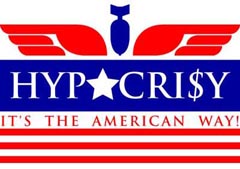With Washington luminaries in attendance, the Iranian dissident group NCRI and its formerly armed wing MEK inaugurated their sleek new offices Thursday, within sight of the White House.
An Iranian dissident group that languished on the US list of terrorist organizations for more than a decade under both Democratic and Republican administrations marked its full rehabilitation Thursday when it opened sleek new offices – complete with floors covered by plush Persian ca rpets – within sight of the White House.
rpets – within sight of the White House.
Just how stunning the reversal of fortunes has been for the National Council of Resistance of Iran (NCRI) and its formerly armed wing, the Mojahedin-e Khalq, or MEK, was underscored by the long list of Washington luminaries who attended the office inauguration.
From prominent former members of Congress to former national security officials and high-profile diplomats, the caliber of the American advocates on hand for the ribbon-cutting demonstrated how effective the Iranian opposition organization has been at transforming its image – from that of a fringe group with a violent past to one in which it is the embodiment of the democratic aspirations of the Iranian people.
Referring to the NCRI’s platform, which states as its goal the fall of the ayatollahs’ regime and the establishment of “a free, secular, democratic, and non-nuclear Iran,” Gen. James Jones, who served as President Obama’s first national security adviser, described the objectives as “completely in sync with our core [American] values.”
That is a remarkable turnaround for a group that President Clinton placed on the list of terrorist organizations in 1997 – ostensibly as a result of the one-time Marxist group’s violent acts, including against Americans, but by some theories as part of a campaign to pave the way to negotiations with the Iranian regime.
Whatever the reason, the terrorist designation stuck through the Bush administration and was only lifted by former Secretary of State Hillary Rodham Clinton last September after a long court battle.
Others on hand to fete the Iranians’ new status included former US ambassador to the United Nations and Bush administration diplomat John Bolton, former Sen. Robert Torricelli (D) of New Jersey and former US Rep. Patrick Kennedy (D) of Rhode Island, and P.J. Crowley, a former assistant secretary of State for public affairs who served under Hillary Clinton.
Several Republican members of Congress who have lobbied on the group’s behalf sent their regrets at being unable to attend but sought to mark the occasion through letters or by dispatching staff to the opening.
Mr. Crowley, now a teacher of diplomacy and global communications at George Washington University, hailed the NCRI as the “better option’ for “democratic change” in Iran when stacked up against the alternatives.
“When change comes to Iran,” Crowley said, “it will be the NCRI that brings in that change.”
Yet despite the group’s Washington makeover, not everyone is convinced that the Paris-based organization, which some critics slam as a cult enthralled with leader Maryam Rajavi, is the opposition that many Iranians see as the ideal alternative to the Islamic revolution.
The MEK’s fighters are still hated by many Iranians for living in exile in Iraq under the protection of Saddam Hussein – and for having allegedly fought on Iraq’s side in the Iran-Iraq war. Hundreds of those fighters still live precariously in camps in Iraq, with their security and well-being a passionate issue for prominent advocates like General Jones.
Some US critics of the NCRI say there are no grounds for believing the group has anything of a positive image, let alone actual support, in Iran. Going further, they point to the high speaking and lobbying fees that some of the group’s prominent American advocates have reportedly been paid as evidence of Washington support that is only dollars-and-cents deep.
But the dignitaries at Thursday’s inauguration – described by Ambassador Bolton as “a distinguished bipartisan group, a rare occasion in Washington these days” – said they were on the NCRI’s side because they see it as Iran’s best hope for attaining freedom.
Senator Torricelli compared the NCRI in 2013 to when the “Free French” opened an office in London in 1940. “Maybe a lot of people didn’t notice,” he said, but the French resistance would go on to play a crucial role in France’s liberation.
The NCRI, with a new office in Washington, can start down that same path, he said, adding, “I’m proud to be a soldier in that struggle.”
By Howard LaFranchi, Staff writer

